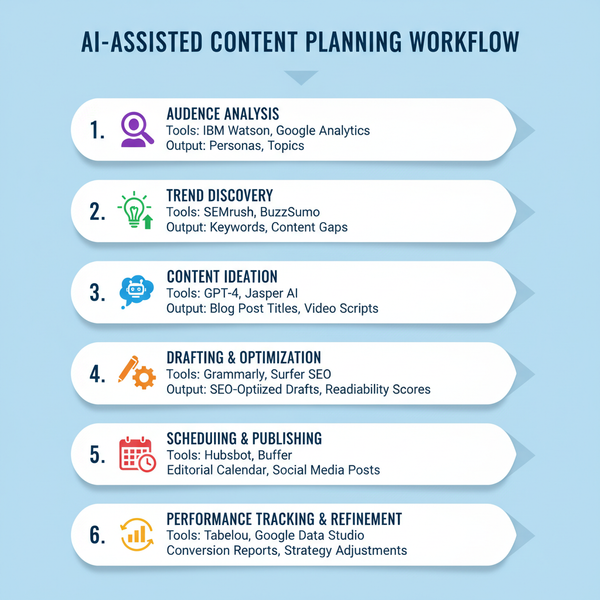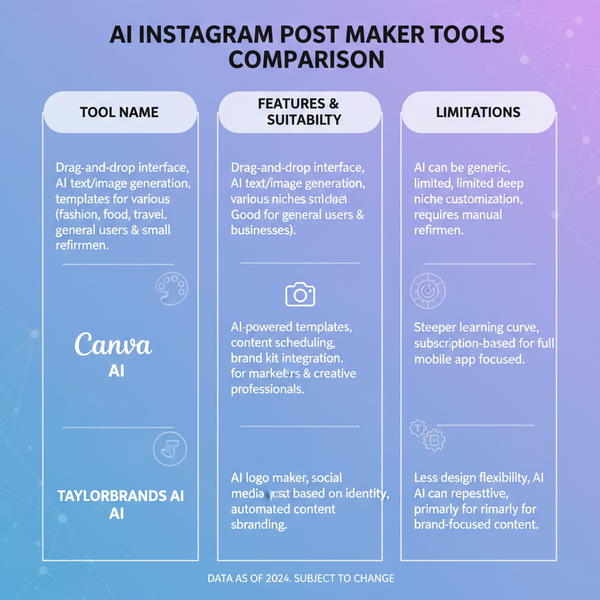Top Content Analytics Software for Marketing Success
Discover top content analytics software, their features, and comparisons to optimize marketing performance, track engagement, and measure ROI effectively.
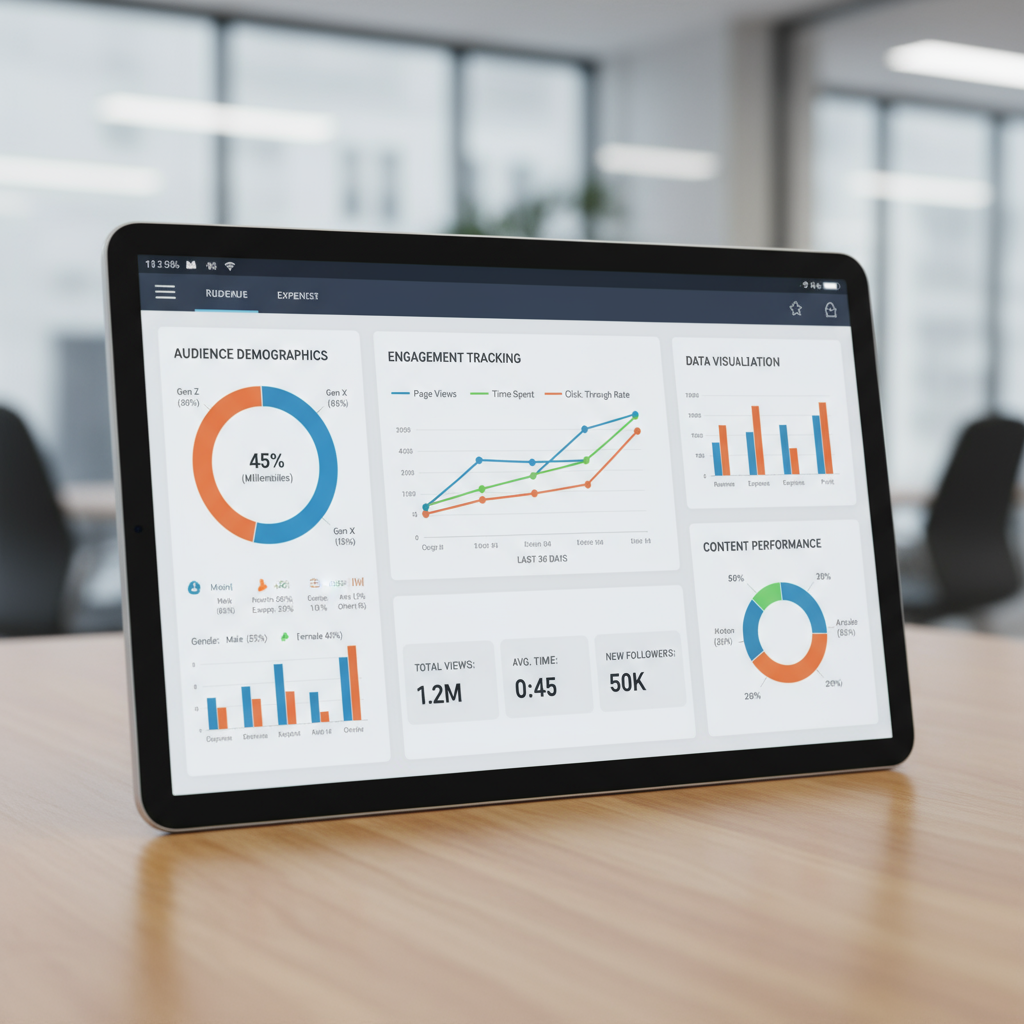
Introduction to Content Analytics Software
In modern digital marketing, content analytics software has become a critical tool for understanding and improving the performance of your online content. Whether you publish blog posts, videos, social media updates, or landing pages, tracking and analyzing how audiences interact with them ensures your efforts align with business goals. By gathering data on user behavior, engagement, and conversions, teams can make informed, data-driven decisions rather than relying on guesswork.
Marketers who integrate analytics into their workflow gain clarity on what resonates with their target audience, identify which channels drive the most traffic, and uncover formats that maximize ROI. This guide explores the benefits, features, comparisons, and practical steps for using content analytics software to enhance every stage of your marketing strategy.

---
Key Benefits of Using Content Analytics Software for Marketers
Leveraging the right analytics platform provides distinct advantages:
- Performance Optimization
- Spot high-performing content and replicate successful strategies across channels.
- Audience Understanding
- Uncover demographic and psychographic insights to fine-tune your messaging.
- ROI Measurement
- Quantify how content contributes directly or indirectly to revenue.
- Resource Allocation
- Focus budget and effort on proven formats and campaigns.
- Competitive Intelligence
- Benchmark against competitors and industry standards to identify gaps and opportunities.
---
Core Features to Look For
Before committing to a tool, evaluate essential functionalities.
Data Visualization
Customizable dashboards, charts, and heatmaps help simplify complex data for all stakeholders.
Audience Insights
Understand who interacts with your content, including location, devices, and consumption patterns.
Engagement Tracking
Track dwell time, click-through rates, and scroll depth to assess interaction quality.
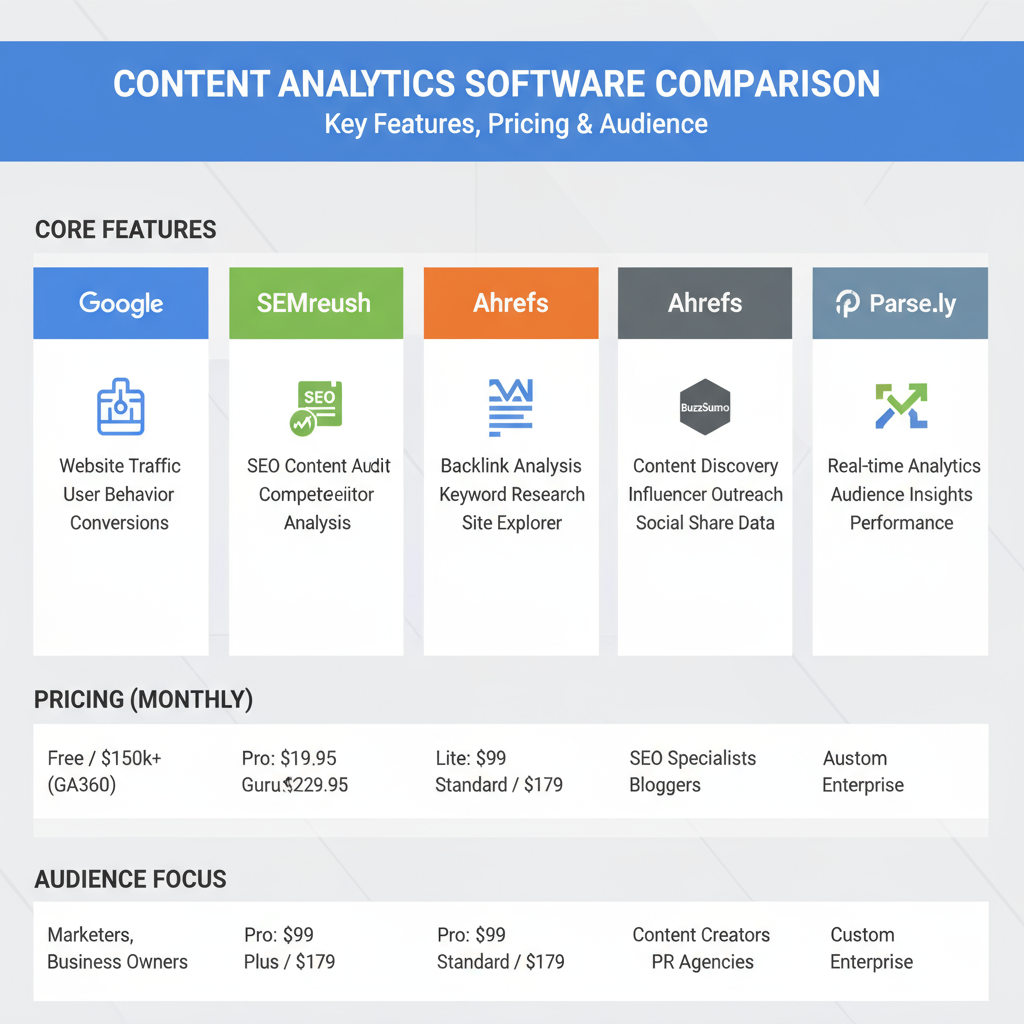
---
Comparison of Top Content Analytics Software Solutions
Below is a side-by-side look at leading options:
| Software | Key Strengths | Best For | Pricing Model |
|---|---|---|---|
| Google Analytics | Comprehensive web tracking, free tier, integration with Google Ads | All website-based businesses | Free / Premium (GA 360) |
| HubSpot | In-depth inbound marketing analytics, CRM integration, customizable dashboards | Businesses using HubSpot CRM | Subscription-based |
| Semrush | SEO-oriented insights, keyword tracking, competitor analysis | Marketers focused on organic search | Subscription-based |
| ContentSquare | UX and digital experience analytics, heatmaps, session replay | Companies optimizing user journey and website experience | Custom pricing |
---
How to Choose the Right Software for Your Business Size and Goals
Selection depends on your company’s scale and objectives:
- Small Businesses: Google Analytics offers a free, robust option.
- Medium Enterprises: HubSpot provides scalability and CRM integration.
- Large Corporations: ContentSquare delivers advanced UX insights and predictive analytics.
Always align your platform choice with the outcome you need most — whether it’s lead generation, audience engagement, or retention.
---
Integrating Analytics Tools with Your Existing CMS
Modern analytics platforms typically integrate with WordPress, Drupal, and Shopify. Integration steps include:
- Installing tracking codes or plugins.
- Setting up API connections for real-time updates.
- Mapping CMS content fields into analytics dashboards.
This creates a centralized view of data, eliminating redundant manual entry.
---
Using Analytics to Inform Content Strategy
Applying the data to editorial planning drives results:
- Identify high-engagement themes for future content.
- Adjust publishing schedules to match peak activity times.
- Optimize formats and lengths based on audience preferences.
- Run A/B tests backed by real analytics data.
---
Metrics to Track for Insightful Analysis
Monitor metrics that provide actionable insights:
- Click-Through Rate (CTR)
- Bounce Rate
- Conversion Rate
- Social Shares
- Average Session Duration
These KPIs connect directly to business objectives, shaping more effective decisions.
---
Common Mistakes in Analytics Interpretation
Avoid these pitfalls:
- Chasing vanity metrics without context.
- Ignoring industry benchmarks.
- Overreacting to short-term spikes or drops.
- Forgetting qualitative feedback alongside quantitative data.
---
Future Trends in Content Analytics Technology
New developments will shape the field:
AI-Powered Insights
AI tools will discover correlations hidden in large datasets.
Predictive Modeling
Use forecasting to anticipate changes in audience behavior.
Real-Time Dashboards
Receive instant alerts to optimize content rapidly.
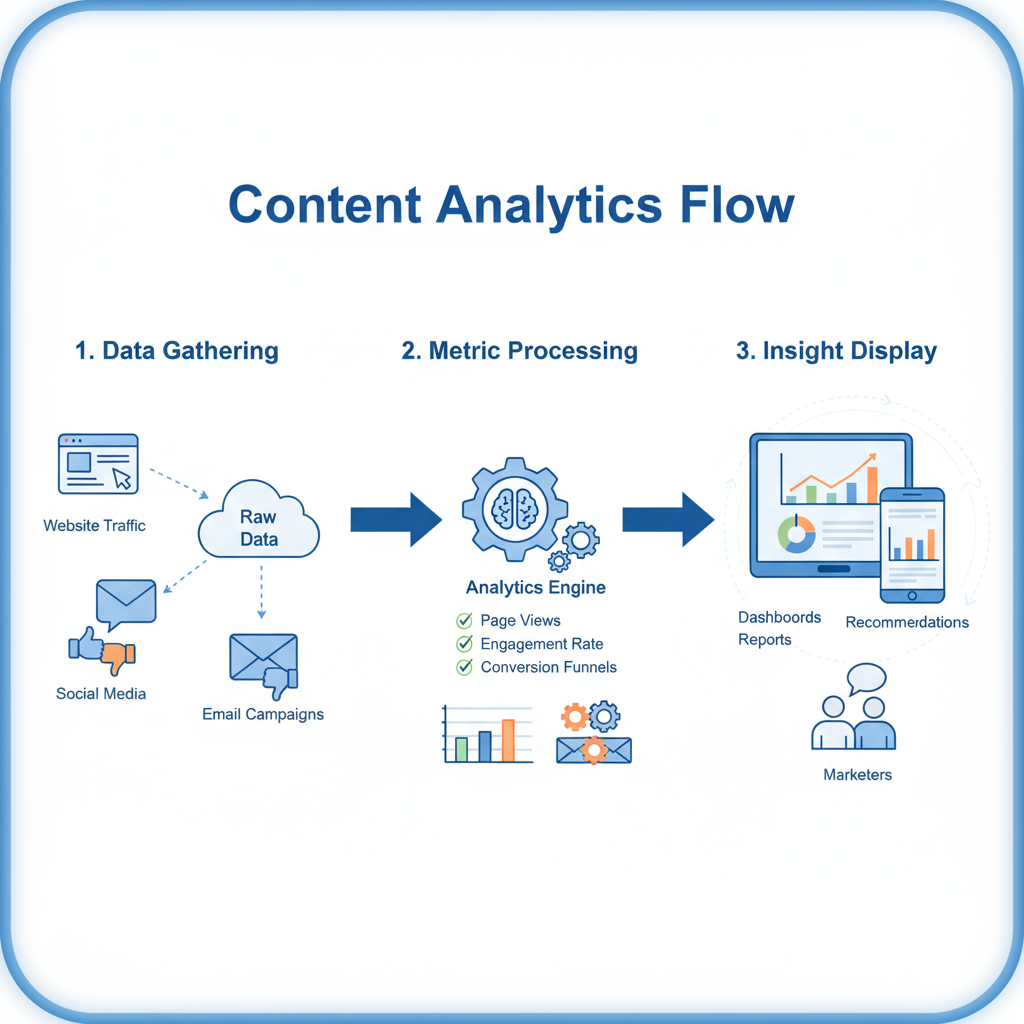
Cloud scalability and deeper martech integration are becoming standard practice.
---
Getting Started Quickly with a New Analytics Platform
Ease adoption by:
- Setting KPIs that tie directly to business goals.
- Recording baseline performance before adjustments.
- Training teams in dashboard interpretation.
- Beginning with core metrics before expanding.
- Reviewing results weekly to spot opportunities early.
---
Conclusion: Maximizing ROI with Content Analytics Software
Integrating content analytics software into your marketing stack boosts audience targeting precision, ROI, and strategy clarity. Selecting the right tool for your size and goals, establishing seamless CMS integration, and continuously applying data to editorial workflows will transform content into a true growth driver.
Avoid focusing on metrics that lack business impact; instead, track signals tied to tangible results. As AI and predictive features advance, early adoption will secure a competitive advantage.
Next step: Explore a trial of your chosen analytics platform and start applying insights to your next content release — measure, refine, and repeat for sustainable success.

